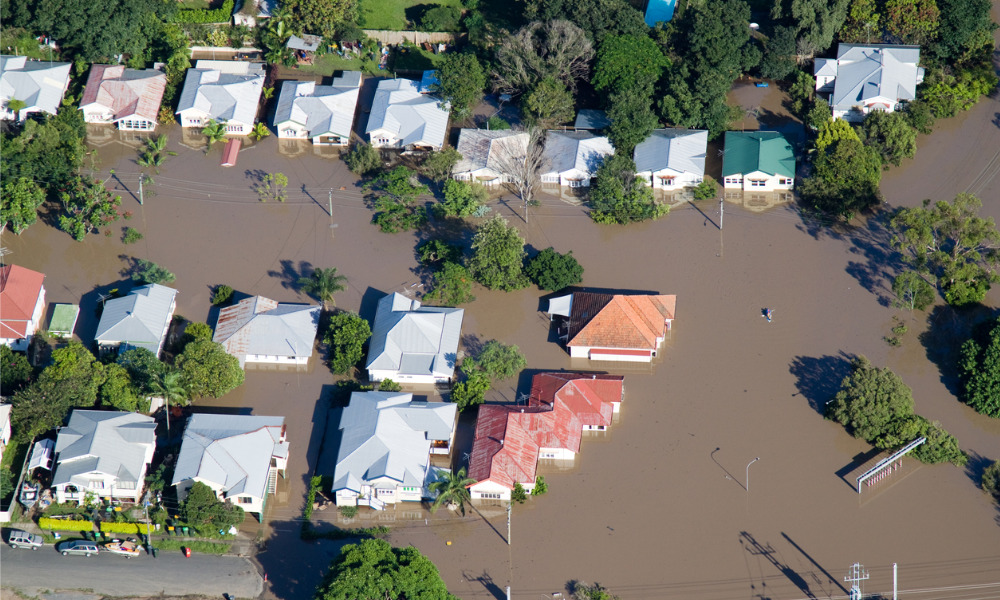The policy shift is said to be "just the beginning"

Nearly five years on from devastating floods that swept through Quebec, Desjardins Group’s decision to halt new mortgages for properties in high-risk flood zones signals a new hurdle for communities grappling with climate change.
Starting February 1, the lender will no longer finance new properties in areas with a significant risk of flooding, a move driven by increasing climate change impacts.
Desjardins has set some conditions, allowing financing up to 65% of a home’s value if the property is already mortgaged with them and has flood prevention measures in place. This shift has sparked concerns among mayors in affected areas, worrying about the potential for unsellable, devalued homes.
Philippe Gachon from the RIISQ flood prevention research institute sees this as a precursor to broader challenges, especially with Quebec set to update its flood risk maps later this year. This is “just the beginning,” he said, adding that “there are people who will discover that they’re in a risk zone when they didn’t necessarily know it before.”
Read next: Desjardins halts mortgages in flood zones, stirring community concern
Desjardins cited the unavailability of flood insurance, government compensation limits, and rising water damage costs as reasons for the policy change. The Quebec government has also shifted its stance, imposing caps on flood damage compensation and encouraging relocation from high-risk zones following the costly floods of 2017 and 2019.
Jacques Demers, who leads the Quebec municipalities federation, said that Desjardins stood out as the final significant lender still providing mortgages in areas prone to flooding. Many banks are still hesitant to finance properties in these zones, fearing the properties might drastically lose value in the event of flooding.
“I’d probably do the same thing in their place,” Demers said, emphasizing that such a cautious approach also serves to shield families from the potential loss of their investments in flood-prone areas.
Make sure to get all the latest news to your inbox on Canada’s mortgage and housing markets by signing up for our free daily newsletter here.



